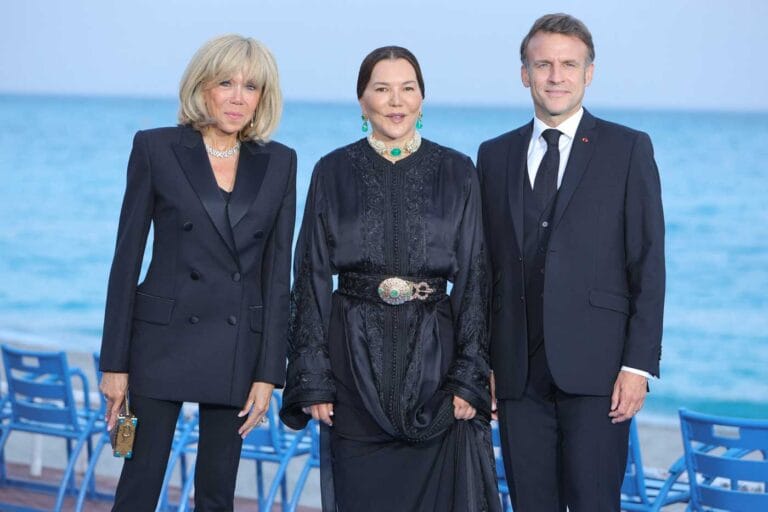French President Emmanuel Macron praised, on Monday in Nice, the “strong” and “clear” commitment of King Mohammed VI in favor of developing a blue economy in Africa, during the opening of the summit “Africa for the Ocean,” which he co-chaired with Princess Lalla Hasnaa, representative of the Sovereign.
Macron expressed his gratitude to Morocco for organizing this summit and for involving France in “this initiative on essential issues for the African continent and for all of us.” He emphasized the Kingdom’s African leadership, led by King Mohammed VI, “whose constant efforts in ocean governance, in the fight against plastic pollution, and for regional cooperation are a reference on the continent.”
The French president praised the message addressed to the participants by King Mohammed VI, read by Princess Lalla Hasnaa, calling it “strong and clear on the strategy to be pursued and (…) that we share.” He also highlighted “the King’s Atlantic Initiative for access to the ocean for landlocked African countries, which reflects this vision.”
Recalling that twenty years ago, King Mohammed VI launched the Tanger Med project, which has now become the most important port in the Mediterranean, Mr. Macron emphasized that in 2026, the works of the Dakhla port “will inaugurate a new era for the Atlantic Ocean and the desire to provide the entire continent with access to this ocean and this opening.”
“It is not a coincidence that this summit is held under the dual banner of Morocco and France, two nations that share a shore, a millennia-old dialogue, a common history, and the desire for a common course and a world better anchored to the essentials,” he concluded.
The “Africa for the Ocean” summit, organized as part of the 3rd United Nations Conference on the Ocean 2025, was an opportunity for exchanges on the development opportunities offered to Africa by its ocean resources, while ensuring responsible governance of marine spaces. Discussions focused in particular on seeking funding for modern and resilient infrastructure, ocean governance, and the management of fish stocks, as well as connectivity between maritime and landlocked countries.
MAP


